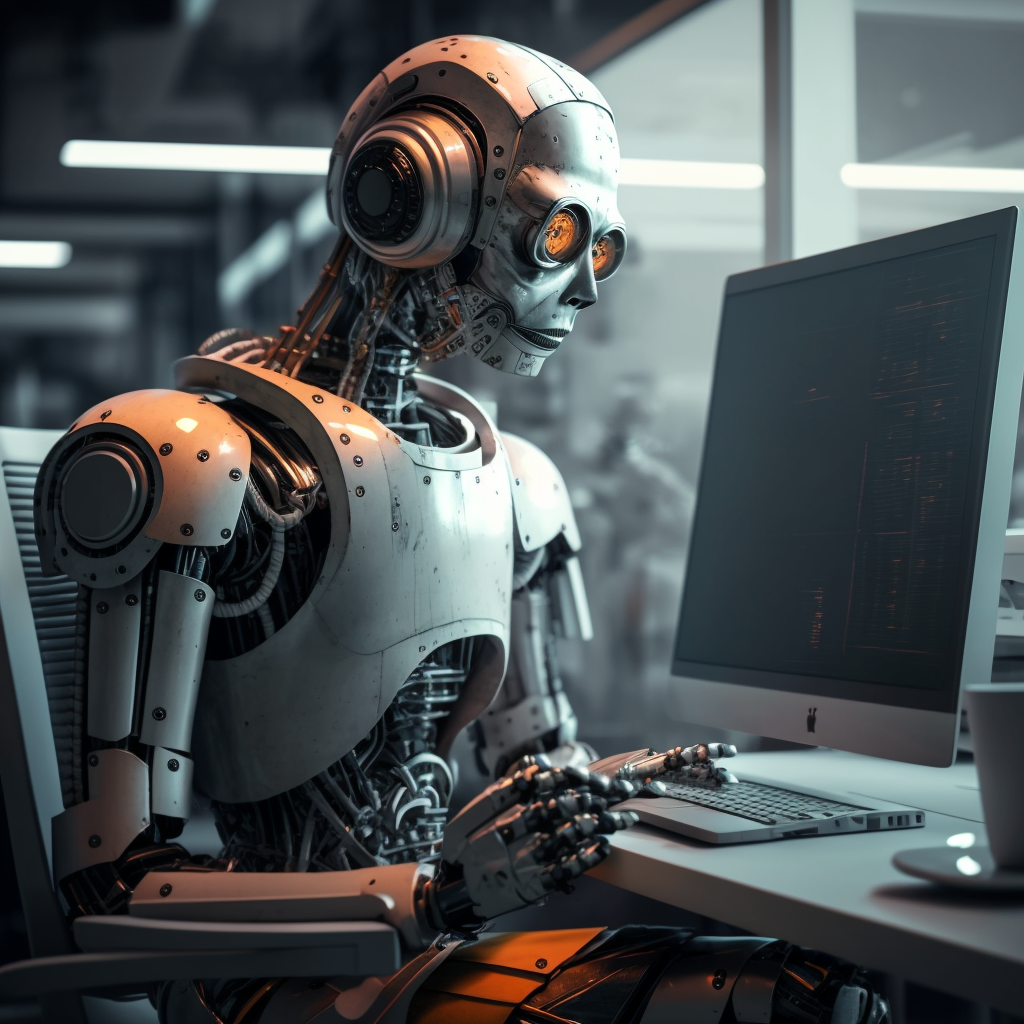The Future of AI in the Workplace
Explore the impact of Artificial Intelligence on the workplace and the future of work
Artificial Intelligence (AI) is transforming the workplace. This blog discusses the future of AI in the workplace and how it will impact job roles, productivity, and the overall work environment.
AI’s impact on the workplace is becoming increasingly significant as technology advances. With AI’s ability to automate routine tasks and enhance decision-making processes, businesses across various industries are incorporating this technology into their operations. However, with the rise of AI, there are concerns about how it will impact the workforce and the future of work. In this blog, we will explore the current state of AI in the workplace, discuss its potential impact on job roles, productivity, and the overall work environment, and provide insights into what the future of work could look like in the age of AI.
One of the most significant impacts of AI on the workplace is the automation of routine and repetitive tasks. As AI algorithms continue to become more sophisticated, it is becoming easier for businesses to automate tasks like data entry, analysis, and customer service. This saves time, reduces costs, and allows employees to focus on more complex and creative tasks that require human expertise.
AI and Workplace Productivity
Another impact of AI in the workplace is the creation of new job roles. While AI may eliminate some job roles, it will also create new jobs requiring skills in areas like data science, machine learning, and AI programming. As AI becomes more integrated into businesses, there will be a growing demand for professionals with these skills. This presents an opportunity for individuals to develop new skill sets and adapt to the changing work environment.
AI can also improve workplace productivity by providing employees with insights and recommendations to help them make better decisions. Algorithms can evaluate enormous volumes of data and provide recommendations to aid staff in making more informed decisions, improving outcomes. AI, for instance, can assist sales teams in finding the most promising leads or HR teams in finding the most qualified applicants for open positions.
However, one of the concerns with AI in the workplace is the potential for bias. The quality of AI algorithms depends on the data they are trained on, and if the data contains preferences, those biases will show up in the algorithm’s results. For example, if an AI algorithm is trained on data that reflects historical hiring biases, it may perpetuate those biases and lead to discriminatory hiring practices. It is crucial that businesses are aware of this potential issue and take steps to ensure that their AI algorithms are trained on unbiased data.
The Broader Implications of AI for Society
The impact of AI on the workplace is not limited to businesses. It also has broader implications for society as a whole. As AI continues to automate routine tasks, it could exacerbate income inequality. The most easily automated jobs are often low-skilled, low-paying jobs; if eliminated, many people could be left without work. Policymakers and businesses must work together to ensure that the benefits of AI are shared equitably across society.
The Role of Ethical Considerations in AI Implementation
As businesses increasingly adopt AI technology, they must consider the ethical implications of their decisions. For example, using facial recognition software in hiring decisions or security systems can raise concerns about privacy and discrimination. It is essential that businesses are transparent about their use of AI and ensure that they are not using the technology in ways that may be unethical or harmful to individuals or communities.
AI and Employee Well-Being
The impact of AI on employee well-being is an essential consideration for businesses. While AI can automate mundane jobs so that workers can concentrate on more important work, it can also cause disconnect and a loss of control. Businesses must create a work environment that promotes well-being and ensures that employees feel valued and engaged, even as AI becomes more prevalent in the workplace. This may involve providing training opportunities to help employees develop new skills or creating opportunities for more meaningful work that leverages their uniquely human abilities.
The Role of Work in an AI-Powered World
As AI continues to transform the workplace, the future of work is likely to look very different from the present. With the automation of routine tasks, the creation of new job roles, and the potential for more flexible work arrangements, the future workforce may be more diverse and adaptable than ever before. Businesses must be agile and responsive to change, and employees must develop new skill sets to remain competitive. However, with suitable investments in training and infrastructure, the state of employment in the AI era has the potential to be more fulfilling and satisfying for everyone involved.
The impact of AI on the workplace is significant and multifaceted. While there are concerns about the potential impact on job roles and income inequality, there are also opportunities for businesses and individuals to adapt and thrive in the age of AI. As AI continues to evolve, it will be essential for companies to prioritize ethical considerations and ensure that the benefits of this technology are shared equitably across society. With suitable investments in training and infrastructure, the nature of employment in the era of AI has the potential to be more fulfilling and satisfying for everyone involved.

Comments are closed